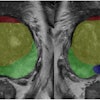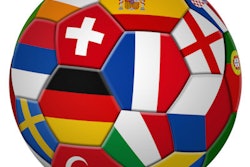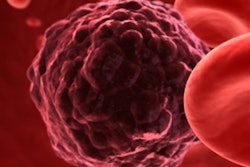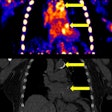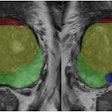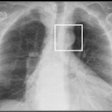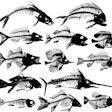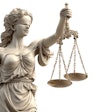Dear AuntMinnieEurope Member,
It's time for a rethink on gadolinium deposition. That's the view of Dr. Alexander Radbruch, JD, who has followed the debate over the safety of MR contrast agents with great interest.
Being a qualified radiologist and lawyer, he's worth listening to. Find out more in our MRI Community, or click here.
It has proved a major challenge to estimate the number of deaths resulting from the IT errors that led to as many as 450,000 U.K. women not receiving their invitations to breast cancer screening over many years. This week, the initial estimate of up to 270 deaths was reduced to 75. To learn more, go to the Women's Imaging Community, or click here.
CT rules supreme when it comes to diagnosing renal trauma, according to award-winning research from Dublin. Radiologists from St. James's Hospital have outlined how to optimize CT protocols for detecting injuries to the renal parenchyma, vasculature, and collecting system, and they have elaborated on CT findings and management options for each grade of injury. For their analysis and clinical images, head to the CT Community, or click here.
The modality also can be used effectively for patients with kidney stones. Researchers have compared the use of CT with digital tomosynthesis and ultrasound, and their findings deserve close inspection. You can do so here.
A significant meeting on artificial intelligence (AI) took place in Lyon, France, last weekend. National radiology groups chose the event to unveil an initiative on AI. Get the full details here, and look out for a further story soon on this symposium.
Meanwhile, German researchers are pioneering the development of AI algorithms that can generate 3D liver models from MRI or CT scans. They examined these models to plan liver cancer surgery and projected them onto the patient intraoperatively using augmented reality software. To learn more, click here.


